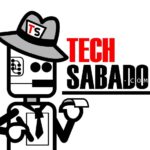PC HARDWARE | Data-driven innovation meets sustainable design

Source: Dell Technologies
Concept Luna is Dell’s breakthrough sustainable PC design, which illustrates the company’s vision of how it can reduce waste and emissions, reuse materials and achieve next-level innovation. With Concept Luna, Dell demonstrates that not only is technology dematerialized, but the materials used can also fuel a robust circular economy. Thereby, reducing the need for new, raw materials.
Since introducing Concept Luna in 2021, Dell’s Experience Innovation Group engineers have refined this modular PC design to eliminate the need for adhesives and cables, and minimizing the use of screws. These refinements make it easier to repair and dismantle a system. As a result, Concept Luna’s evolution could dramatically simplify and accelerate repair and disassembly processes, making components more accessible and expanding opportunities for reuse.
“Imagine a future where we don’t simply discard used electronics. Rather, we harvest individual components for a second, third or even fourth life,” said Glen Robson, Chief Technology Officer, Dell Technologies. “Once the device itself is truly at the end of life, we refurbish and recycle it to incorporate these same materials into next-generation laptops, monitors or phones. It’s a future where nothing goes to waste and the mountain of electronics discarded every year — or more than 57 million tons, globally, to be exact — is dramatically reduced.”
It can take recycling partners more than an hour to disassemble a PC with today’s technology, held together with screws, glues and various soldered components. With the evolved Concept Luna design, Dell has reduced disassembly time to mere minutes. Dell even commissioned a micro-factory to guide its design team, resulting in a device that robots can quickly and easily take apart.
By marrying Luna’s sustainable design with intelligent telemetry and robotic automation, Dell created something with the potential to trigger a seismic shift in the industry and drive circularity at scale. A single sustainable device is one thing, but the real opportunity is the potential impact on millions of tech devices sold each year, and optimizing the materials in those devices for future reuse, refurbishment or recycling.
The telemetry added to Luna also provides the opportunity to diagnose the health of individual system components to help ensure nothing goes to waste. Because the way customers use their technology varies, not all components reach end-of-life at the same time. People working from home, for example, may use external components, such as keyboards and monitors. The laptop’s keyboard and monitor have barely been used, even when the motherboard is ready to be replaced. Dell’s Concept Luna evolution can equip and connect individual components to telemetry to optimize their lifespans. At its simplest, it’s akin to how vehicles are maintained, where the entire car is not thrown away when new tires or brakes are needed.
“These are the explorations that inspire our team of engineers, passionate sustainability experts and designers to continue to evolve Concept Luna. And, while Luna is ’just a concept’ right now, it is a long-term vision for how we achieve an even greater business and societal impact through circular design practices,” Robson said. “As we make strides toward achieving our Advancing Sustainability goals, we will continue to innovate, push design boundaries, solicit feedback and rethink business models. Driving breakthrough advancements and shaping a more sustainable future for all is what Luna is about. I am honored to be a part of this journey.”
Dell’s ongoing work with Concept Luna brings society closer to a future where more devices are engineered with a modular design. The exciting addition of robotics and automation serve as a catalyst to accelerate efficient device disassembly, measure component health and remaining usability, and better understand which components can be reused, refurbished or recycled – so nothing goes to waste. This vision has broad and profound implications for Dell, its customers and the industry at large, with everyone working together to reduce e-waste.
WATCH: TECHSABADO and ‘TODAY IS TUESDAY’ LIVESTREAM on YOUTUBE


